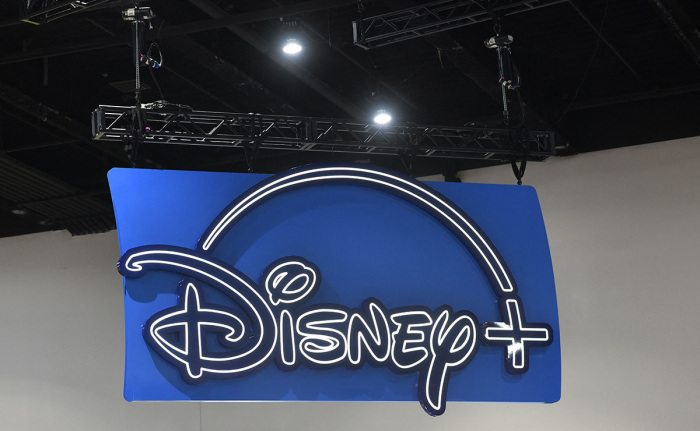Disney Plus breaks promise to stay ‘family friendly,’ adds R-rated movies

A conservative media watchdog group is slamming Disney Plus for breaking its promise not to add R-rated movies to the streaming platform.
On Friday, Parents Television and Media Council announced that Disney Plus “made R-rated Deadpool, Deadpool 2, and Logan available to subscribers today.”
In 2019, the blog “What’s On Disney Plus” reported that Disney Plus would only include content with ratings of “PG-13 or softer” and that more adult-oriented content the Walt Disney Company acquired from its purchase of 20th Century Fox would be distributed on its other streaming platform, Hulu.
“Three years ago, the Walt Disney Company made a promise to families,” PTC President Tim Winter recalled. “No R-rated movies on Disney+, they said. It’s a family focused platform, they said. We have Hulu for our edgier adult fare, they said. It turns out they were lying to us. After decades of corporate brilliance establishing itself as the world’s most trusted brand for families, today’s C-level suite at Disney has decided to flush it all down the toilet.”
Noting that “Disney+ points subscribers to its parental controls,” Winter insisted that “the mere presence of R-rated and TV-MA rated content violates the trust and sensibilities of families.” He expressed disappointment that “what took decades to build is now taking mere months to erase.”
“One day in the no-too-distant future, business schools will point back to this corrupt corporate U-Turn as they analyze what happened to the once-great Walt Disney Company,” he predicted. “In the meantime, families will continue to be woefully underserved by Hollywood.”
Melissa Henson, program director for the PTC, elaborated on her concerns with Disney Plus’ embrace of R-rated programming in an interview with The Christian Post.
“People who are looking for MA-rated content have … an abundance of streaming platforms that offer that kind of content,” she said. “There are very few streaming platforms that offer only family-friendly content. Disney Plus was one of them. And now, no longer Disney Plus. So, there are fewer and fewer really truly safe options for families.”
Henson told CP that “there are a few competitors out there,” specifically mentioning the video filtering service VidAngel, which can be used “on top of an existing streaming service” such as Disney Plus.
“That allows you to apply content filters so that you can block specific types of content that you don’t want your child to see, whether it’s language, whether it’s sexual situations or violence, drug use, alcohol use. You have the option to turn on filters so that it will skip … over that content so that your kids aren’t seeing it,” she explained.
Additionally, Henson pointed to Angel Studios and UP Faith & Family as family-friendly streaming services available to parents dissatisfied with the programming available on existing streaming platforms. She urged “consumers to put pressure on these streamers to provide more consistency in how the ratings are applied, to have more consistency in how the parental controls are applied and to make sure that there are safe spaces in the streaming universe for family audiences.”
Disney Plus’ embrace of R-rated content is not the first time the streaming service has faced criticism for the material available on the platform. Earlier this year, Disney Plus added six Marvel television series with ratings of TV-MA to the collection. The “TV-MA” rating is the equivalent of an “R” rating, indicating that the material should be available to mature audiences only.
Even before Disney Plus began content explicitly designed for adults, the company had started to incorporate topics described by critics as inappropriate for young children into programming marketed as family-friendly.
Last year, the streaming service announced that a reboot of the animated series “The Proud Family” would feature same-sex parents as characters. In 2020, the short film “Out,” which included a gay main character, premiered on the platform.
The reboot of “The Proud Family” is not the only example of the Walt Disney Company working to introduce LGBT ideology to children. A lesbian was one of the main characters in “Onward,” an animated feature film produced by Disney’s Pixar Animation Studio.
Additionally, the Walt Disney Company created a “Pride Collection” line for children ahead of June, which is recognized by LGBT activists as “Pride Month.” Sweaters, T-shirts and baby clothes bearing the rainbow flag that has come to symbolize the LGBT movement are available for purchase in the “shopDisney” online store, retail shops and at theme parks.
Leaked video footage obtained by Christopher Rufo of the Manhattan Institute and City Journal reveals Disney officials admitting to regularly “adding queerness” to children’s programming.
The video footage was taken shortly after Disney emerged as an outspoken critic of a Florida law derided by critics as the “Don’t Say Gay Bill,” which prevents school officials from discussing topics related to sexual orientation and gender identity with students in kindergarten through third grade.
Henson cited the integration of LGBT ideology into children’s programming and Disney Plus’ addition of R-rated content to its portfolio as evidence that “there seems to be a general movement from Disney away from its roots.” She recalled that founder Walt Disney wanted to “bring families together” by producing content that would “bring families together” and “unite families.”
“It seems that the current leadership of Disney is moving away from that and instead choosing programming that’s divisive, that is going to cause families to split up and go to separate corners of the house,” she added.
Henson maintained that this phenomenon has led to “mom and dad in one room watching the R-rated content, [and] the kids in another room watching the G-rated content, instead of trying to provide a place where families can sit down and enjoy the same content at the same time.”
Ryan Foley is a reporter for The Christian Post. He can be reached at: ryan.foley@christianpost.com




























